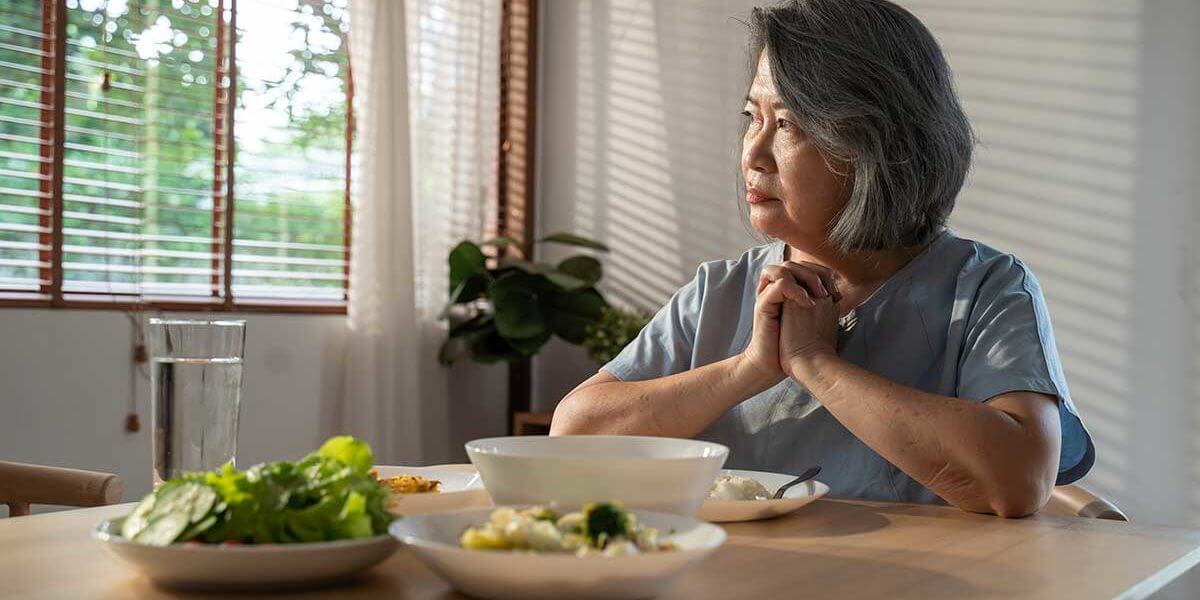Crossroads Maine’s eating disorder treatment center employs a fully integrated model of care. Our treatment addresses both eating disorders, addiction, and any other co-occurring disorders together throughout every step of care. The treatment team combines specialists in treating eating disorders and addiction. These experts collaborate to develop an effective treatment plan for each woman. We don’t offer a one-size-fits-all approach because we know that no two women or situations are identical.
Both disorders are chronic diseases that may result in relapse without proper treatment. As a result, women in recovery need a space to participate in therapy, enhancing their understanding of how these two conditions correlate. We treat women as a whole without just focusing on symptoms. We also address underlying issues and provide physical, mental, emotional, social, and spiritual healing. To learn how our treatment programs can support your recovery, please contact Crossroads Maine today at 877.978.1667.
When Should You Seek Treatment For an Eating Disorder?
Seeking treatment can be difficult, no matter the stage of the recovery process you are in at the time. Whether this is your first time seeking treatment or the fourth, the key is to know when to seek help. Eating disorder treatment can involve four levels of care. Residential care, a partial hospitalization program (PHP), an intensive outpatient program (IOP), or outpatient counseling are the most common options. However, first, you must learn when to seek treatment.
Eating Disorders Often Start as Diets
When an individual has an eating disorder behavior, it may have started as a diet or a crusade to eat more healthily. Many times, women begin limiting the quantity of food and then restricting the food they eat. Some individuals start by going on a specific diet program or meal plan where they omit certain food groups and fast for specific periods of time. You may see extreme weight loss in a short period, causing you to develop a sense of success. This feeling then motivates you to continue dieting. Your diet quickly spirals out of control, which may mean you begin cycling through periods of binging and feeling out of control in your eating after heavy discipline and restriction.
Eating Disorder Thinking
For some women, weight loss continues as a result of a diet. However, an obsession with food begins, and compulsive thoughts about food, eating, and weight gain/loss often enter their minds. At first, you may be able to banish these thoughts for a time, but these same thoughts often become all-consuming after some time. When the obsession with food, weight, eating, and the like becomes all they think about, it may be time to seek treatment.
Weight Loss and Behavioral and Emotional Changes
You may experience a range of changes during the initial stages of an eating disorder. Many people recognize mood changes first. Some of the changes that often occur in anorexia, bulimia, and binge eating disorders include:
- Irritability
- Depression
- Social isolation
- Wanting to sleep more often
If you’ve seen these changes, it may be time to seek help.
The Eating Disorder Treatment Center at Crossroads Maine Can Help
Crossroads has been treating addiction and behavioral health since opening its doors in 1974. Throughout this time, many women in Maine have been struggling with substance use disorders and eating disorders. Our founders created Crossroads Maine’s eating disorder treatment center to help women cope with these co-occurring disorders.
If you believe you have an eating disorder, reach out to a counselor, therapist, or doctor and discuss the condition’s behaviors, thoughts, and physical effects. Early intervention is essential and will provide the best likelihood of full recovery. Learn more about the eating disorder treatment center at Crossroads, or call us at 877.978.1667 for more information.


















